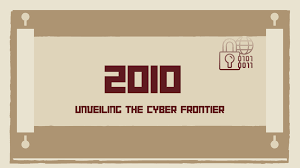In the year 2010, a series of cyber attacks targeted Gmail accounts of human rights activists, sparking widespread concern about digital security, privacy, and the broader implications of such attacks on individuals advocating for human rights. The attacks, which were first publicly disclosed by Google in January 2010, highlighted the vulnerability of online platforms and the potential for state-sponsored cyber intrusions.
The primary targets of these attacks were individuals critical of certain governments, particularly those in China. Google reported that the attackers aimed to access the email accounts of Chinese human rights activists, and similar incidents were reported by other major technology companies. The attackers employed sophisticated methods, including spear-phishing and malware, to compromise the accounts of their targets.
In response to these cyber attacks, there was an immediate and widespread outcry from human rights organizations, technology companies, and governments around the world. The incident raised serious questions about the role of technology in safeguarding individuals' rights to privacy and freedom of expression. It also shed light on the growing challenges posed by state-sponsored cyber threats in an increasingly interconnected world.
Google, in an unprecedented move, publicly declared its intention to stop censoring search results in China and threatened to exit the Chinese market altogether unless the government allowed for an uncensored search engine. This bold stance by Google underscored the gravity of the situation and the importance of protecting digital spaces as a fundamental aspect of human rights.
The international community responded with a mix of condemnation and calls for increased cybersecurity measures. Governments, human rights organizations, and tech companies collaborated to investigate the attacks, sharing information and strategies to enhance digital defenses. The incident prompted a reevaluation of cybersecurity policies and led to the development of more robust measures to protect individuals, organizations, and activists in the digital realm.
The attacks on Gmail accounts in 2010 marked a turning point in the discourse around the intersection of technology, human rights, and geopolitics. It highlighted the need for stronger international norms and regulations to govern cyberspace and protect individuals from state-sponsored cyber threats. Efforts were made to establish clearer rules of engagement in the digital domain, and discussions around the development of a global framework for cybersecurity gained traction.
The incident also underscored the importance of user education and awareness in navigating the digital landscape securely. It prompted individuals and organizations to be more vigilant about online security, including the use of two-factor authentication, secure communication channels, and regular cybersecurity training.
The 2010 cyber attacks on Gmail accounts of human rights activists served as a wake-up call for the global community, prompting a reexamination of the vulnerabilities inherent in the digital age. It laid the groundwork for ongoing discussions about the responsible use of technology, the protection of human rights online, and the need for international cooperation to address cybersecurity challenges. The lessons learned from this event continue to shape conversations around digital security and the delicate balance between privacy, freedom of expression, and the ever-evolving landscape of technology.






